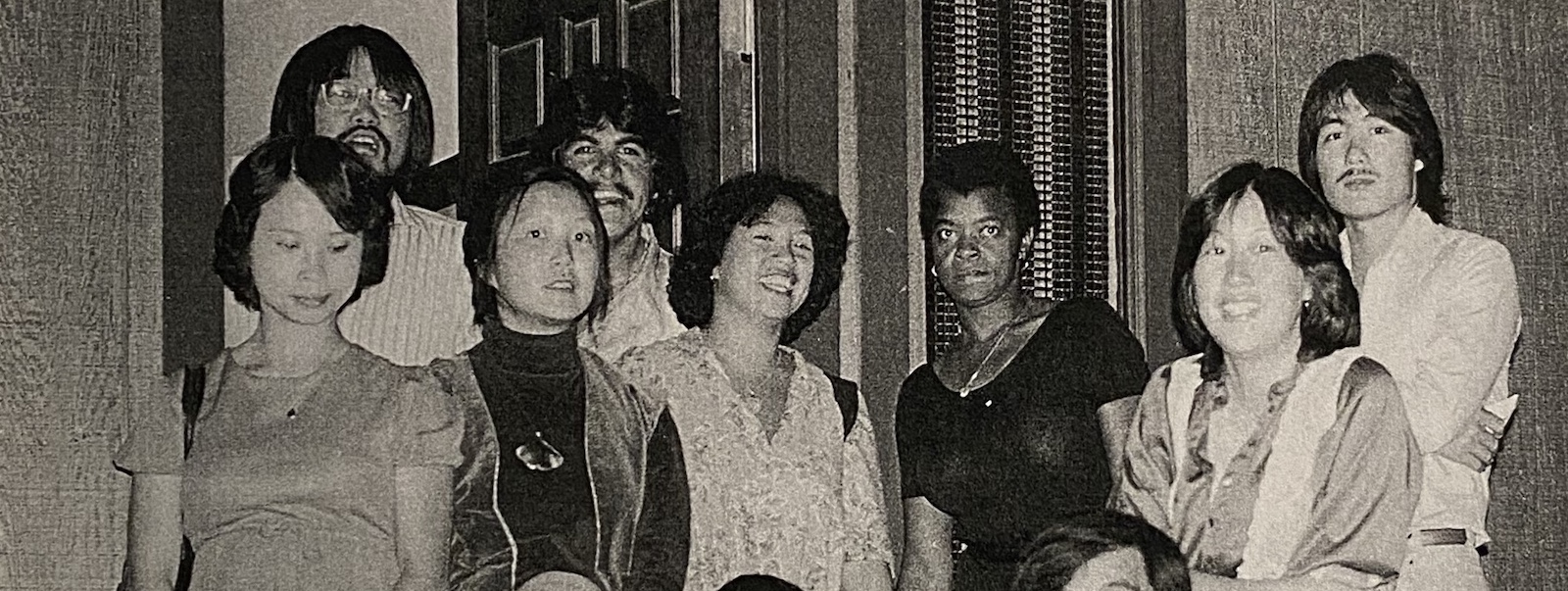Our Narrative: A History of Asian American Studies at De Anza
Yay, you found us! Glad you're here. I'm Mae Lee, the current Department Chair of Asian American and Asian Studies (ASAM) and a faculty member in Ethnic Studies at De Anza.
I'm Karen Wang, a De Anza student and research intern in the ASAM department. Mae and I worked on this project together, and we'll also be the narrators of this timeline.
Who Are We?
Welcome to Our Narrative. We're excited to share a history of Asian American Studies at De Anza. We've done so much detective work. And we want to show you how we pieced the story together. But that's getting ahead of myself. First, let me introduce myself a bit more.
I've been teaching Ethnic Studies at De Anza since 2001. Back then, I was working on my PhD in cultural anthropology at UC Santa Cruz. I had gone to graduate school because I wanted to teach Asian American Studies to college students. And lucky me, De Anza at that time needed someone to teach an Asian American history class. That ended up being me.
I've been at De Anza ever since. After all these years, I still love teaching. Especially Asian American Studies. As a kid, I never really had the chance in school to learn much about Asian Americans. There was no Asian American Studies. Which meant I had a hard time making sense of my own experiences growing up in New Jersey and New York as a Chinese American in the 1970s and 1980s.
In contrast to that, it's amazing to know that De Anza offered its first Asian American Studies course in January 1970. And since 2019, we've had the Asian American and Asian Studies department—ASAM. This led us to wonder: What led De Anza to offer its first Asian American Studies course? How did the Asian American Studies program grow so that we now have an official department? I think it's pretty important to know how we got here. And by "we," I mean ASAM.
I didn't know the answers to these questions. That's what brought about this research project: Our Narrative: A History of Asian American Studies at De Anza.
As for me, I left my tech career in 2022 to explore ways to improve mental health within Asian American communities—an issue that has only grown more urgent in the aftermath of COVID-19. This search brought me to De Anza, where I took my first-ever Asian American Studies course with Mae.
My growing interest in the field led me to become involved in this project, which has since become a cornerstone of my academic journey.
What Is This Project?
This project is an initiative of the Asian American and Asian Studies (ASAM) department in partnership with the California History Center (CHC). It forms part of a larger project titled Asian American Storytelling in the Santa Clara Valley, funded by De Anza’s first-ever National Endowment for the Humanities grant, Voices of Silicon Valley: Using Heritage Discourse to Counteract Placelessness and Build Belonging.
We created a timeline of key events and players in the department’s development while examining themes of institutional politics, counter-narrative, identity formation, and consciousness of power within the local Asian American community.
One of our central goals is to make this history accessible and relevant to a general audience. We aim to present the information in a way that will resonate with not only the students, staff, and faculty of De Anza, but also children, parents, professionals, and others who might not typically engage with Asian American Studies. That's why we decided to use a non-traditional tone and format incorporating avatars and dialogue—to emphasize that knowledge has context, perspective, and human input.
Through this approach, we hope to show how Asian American Studies and Ethnic Studies more generally have always been and remain deeply intertwined with community engagement and a willingness to critique established intellectual frameworks.
Written November 20, 2024

